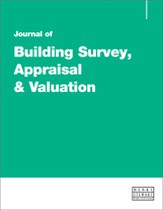Be a good expert: Tell the truth
Abstract
This paper is aimed at surveyors and other property professionals who currently undertake, or who are considering undertaking, expert witness work. Many technical specialists can rightly consider themselves ‘experts’; however, it is quite another thing to be a competent and useful ‘expert witness’. What is the difference, and how can an expert properly transfer their qualifications and experience from their day-to-day work to the provision of expert evidence that will be scrutinised by lawyers? This paper aims to answer such questions and to provide guidance on how experts can improve their delivery of expert evidence in line with the rules. Tips are provided on how to produce good written reports and effective oral evidence. Examples of recent case law demonstrate that the courts are clamping down on poor-quality experts by serving painful sanctions, ranging from scathing criticisms in judgments to custodial sentences. It is hoped that this paper will assist property professionals to better understand their role and what is required of them when they accept expert instructions from solicitors.
The full article is available to subscribers to the journal.
Author's Biography
Paul Beckett is a Director and Co-founder of Phlorum, a multidisciplinary environmental consultancy serving a range of professionals in the land use planning and construction sectors. He has been working as an environmental consultant since the early 2000s. This was where he first gained experience in expert witness work, providing proofs of evidence and being cross-examined during public inquiries for large development proposals. It was during the 2010s, however, that the balance of his expert witness work shifted towards civil litigation in the courts. This has particularly been due to his involvement in a landmark ruling and subsequent appeal decision that caused an avalanche of private nuisance and damages claims related to the impact on property of the pernicious alien invader, Japanese knotweed. He has since gained significant experience of the litigation process, seeing at first hand how settlements and judgments feed a growing appetite for claims, with almost anyone involved in surveying, owning and/or managing property finding themselves in the crosshairs. He continues to work for claimants and defendants on Japanese knotweed cases, and also where air quality, odour and dust cause nuisance or health impacts.
Citation
Beckett, Paul (2022, June 1). Be a good expert: Tell the truth. In the Journal of Building Survey, Appraisal & Valuation, Volume 11, Issue 1. https://doi.org/10.69554/CSSF6645.Publications LLP
